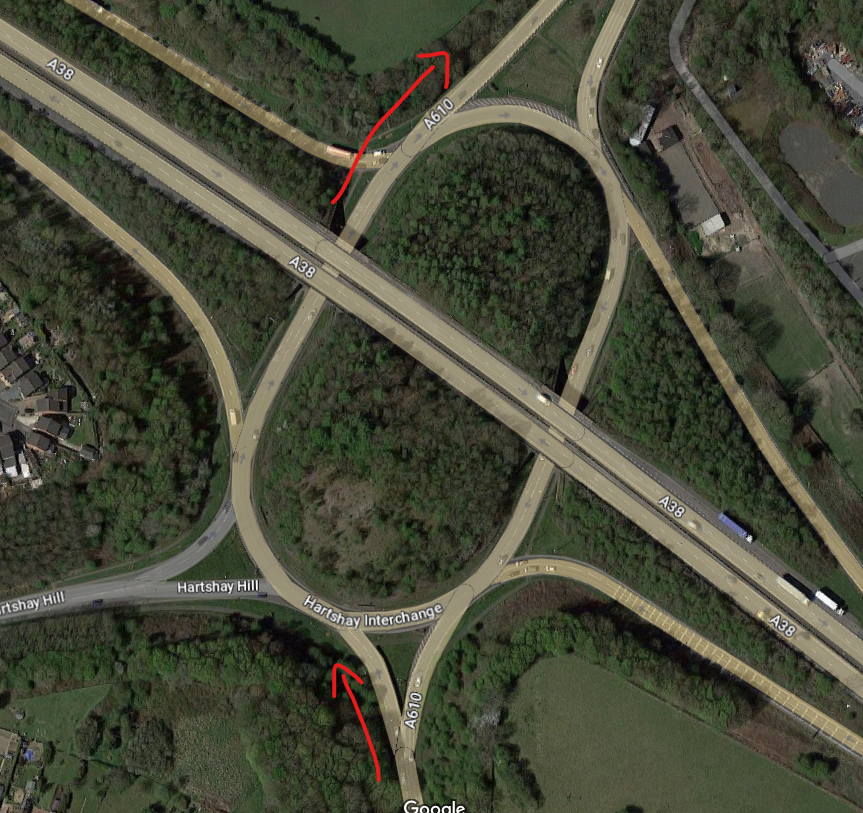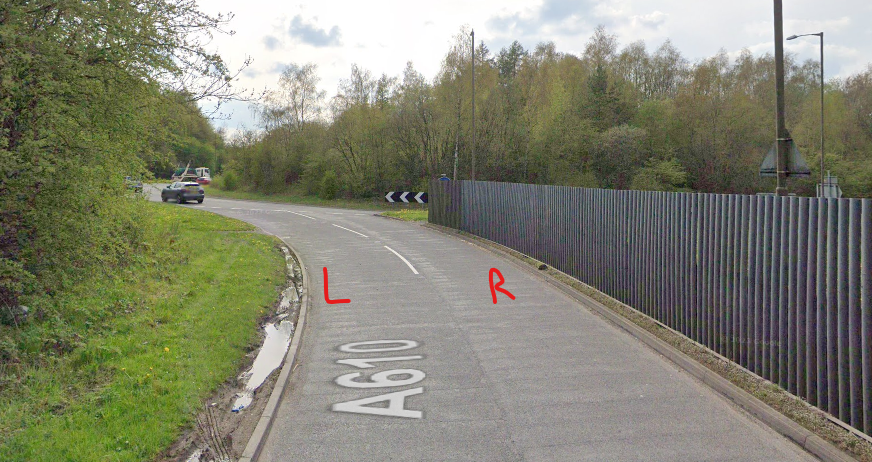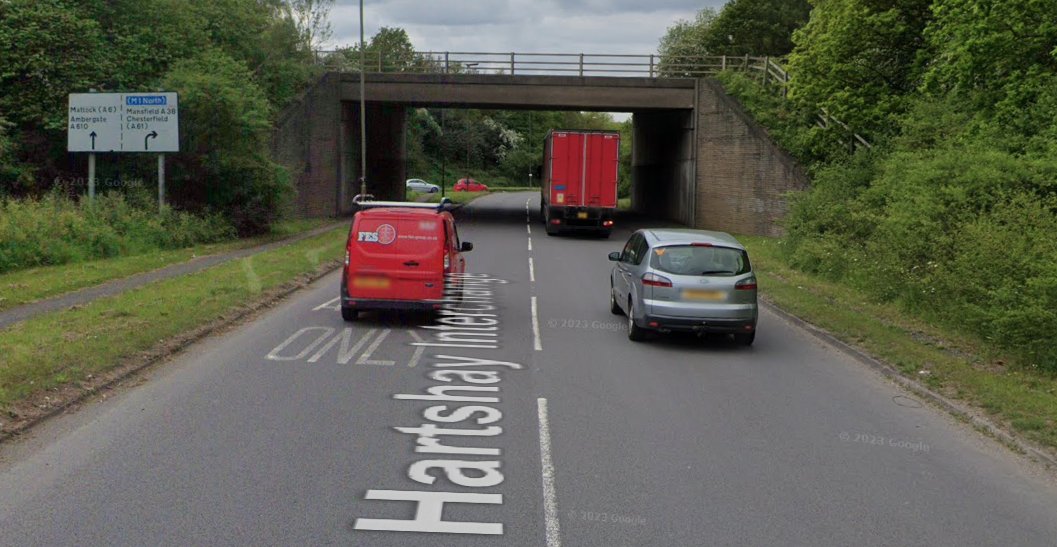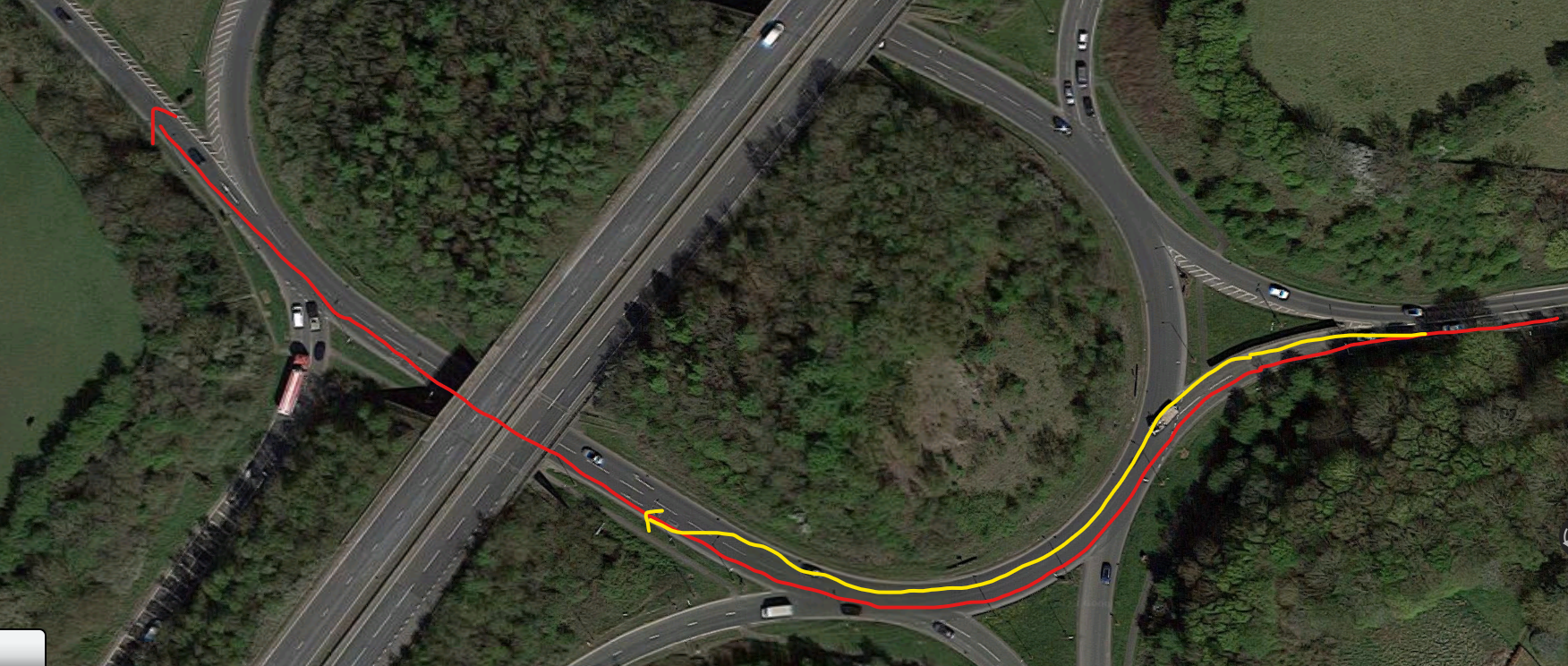There's a roundabout I use semi-regularly which I feel has ambiguous lanes.
The roundabout is the junction between the A38 and the A610 in Ripley, Derbyshire, UK.
There's no signs or roadmarkings which tell you which lane to use, so which would you use when travelling in the A610 Ambergate direction from the A610 Ripley?
This is the roundabout in question, with the entry and exit marked:

Here's the entry, with the lanes in question marked:

Between the entry and exits in question on this roundabout, there are two other exits - a minor B6441 to Ripley, and the A38 to Derby.
There's an added complication that the left lane on the roundabout is for the A610 only:

If I use the left lane, I frequently have people overtake in the right lane, then cut in to the left to exit. To me, it feels more natural to take the left lane and follow it round to exit in the correct lane.
This diagram possibly explains what I mean a bit clearer:

I've had disagreements with people over this - some say use the right lane as you're going past two other exits and the exit is "to the right of the entry". Some say they use the left lane as it feels more natural, which I agree with.
I have understood roundabout lane discipline to be as follows:
Left lane for turning left and straight on, right for turning right only, unless signposted or marked otherwise. This entry/exit combination to me seems like a "straight-on" situation, hence why I'd choose to use the left lane.
So I put it to you, what lane would you choose and why?
EDIT: I wasn't clear when asking, I apologise. I'm asking which lane on approach to the roundabout - not which lane on the roundabout.
As well as my previous answer, I've drawn guidelines, illustrating 15 examples for each lane of each entry/exit. In an ideal world, you'd use it like this. hide and unhide the lines to see clearer/more
Whilst drawing, I could actually see why you think the left lane is viable, because most of the entries have an immediate exit with no need to use the lane of the roundabout. But it's still not correct.